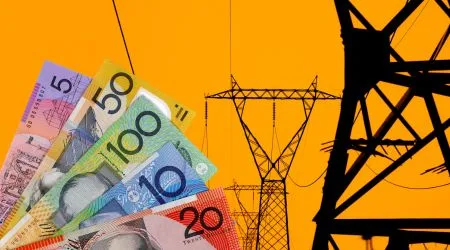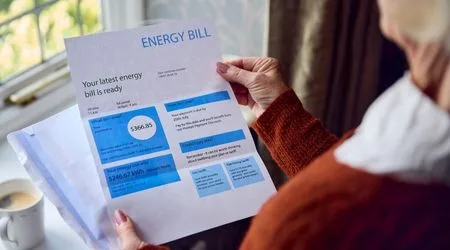
All the big savings account interest rate rises: ING, AMP, Westpac + more
Good news for customers as several major banks are lifting the interest rates offered on their savings accounts. Is yours?

All the big savings account interest rate rises: ING, AMP, Westpac + more
Good news for customers as several major banks are lifting the interest rates offered on their savings accounts. Is yours?

Australian credit card debt soars 10% in a year: How can you escape the trap?
We're carrying larger credit card balances, meaning bigger interest charges.

4 cashback home loan offers to ease the pain of RBA rate hike
The RBA might have increased the cash rate at its February decision, but that doesn't mean borrowers need to be worse off.

Finder’s RBA Survey: Easing cycle ends as RBA delivers first rate hike since 2023
After no movement in 2024, and three cuts in 2025 the Reserve Bank of Australia started off 2026 with a cash rate hike.

Ubank is about to lift its savings rates even higher - here's how to get the new market-leading bonus rates on offer.

Top savings account rates after the RBA’s cash rate increase
The RBA increasing the cash rate is good news for savers as we can expect to see banks begin to lift their savings account rates.

The RBA has had its first meeting of 2026, deciding to increase the cash rate for the first time since 2023.

To help Australians find the best mortgages in the country, Finder has announced the winners of its Home Loans Awards 2026.

Home insurance pricier thanks to climate change: where to find cheaper cover
A new survey commissioned by the Climate Council has found that more than half (54%) of Aussies think home insurance will become unaffordable in the area they live due to extreme weather.

Finder’s RBA Survey: Rising inflation means RBA rate hike likely
A sudden jump in inflation means the RBA is likely to hike interest rates on Tuesday, as mortgage holders nationwide brace for the decision.

SPONSORED: Thinking about joining a crypto membership program? We take a closer look at the Level Up program from Crypto.com.

SPONSORED: With 2026 kicking off, we take a look at some of the key features offered by Crypto.com's trading app.

The RBA is due to meet next week to make its first cash rate decision of 2026. The latest inflation data suggests a rate hike might be on the cards.

Apple Watch users in Australia can finally get blood pressure alerts
Find out how to set up hypertension alerts on your iPhone.

Aussie Dollar soars: 4 destinations you can visit cheaper right now
The dollar goes further, and so can you!

Electricity bills could jump 24% this year, but there’s a silver lining (kind of)
This comes on the back of government energy bill rebates ending.

Back-to-school bills bite: 1 in 3 Aussie parents can’t afford supplies
Australian families are being hit with soaring back-to-school costs, according to new research by Finder.

in1Bank to ‘hand back licence’: What happens to your money then?
Digital bank in1Bank has announced it will be ceasing operations, affecting banking customers and home loan customers.

SPONSORED: Looking to take the next step in life or for your business? Zip Money may be able to help fund your future goals.

SPONSORED: Looking for an alternative to credit cards and loans? Digital credit with Zip Plus can offer an option.

Holiday hangover: Millions of Australians are stuck paying off Christmas debt
Many Australians are entering the new year still paying off Christmas spending, according to new research by Finder.

Hostplus, AustralianSuper and Cbus are among the best performing funds over the last 10 years.

Nest egg nightmare: 1.2 million Aussies forced to delay or ditch retirement
Thousands of Australians have had to return to the workforce or delay retirement due to rising costs, according to new research by Finder.

Pipped at the porch: Parcels lost to the tune of $867 million
A massive wave of lost and stolen deliveries is costing Australians a fortune as packages vanish from doorsteps and transit routes nationwide, according to new research by Finder.

Car insurance: How many of us lie, and what happens when we do?
New Finder research has revealed that almost a quarter (23%) of drivers have lied on their car insurance application.

SPONSORED: CFDs are high-risk investments. But when handled carefully, they can work effectively within a variety of portfolios.

Samsung Galaxy S26 release date in Australia + all the juicy rumours
The first major phone launch of the year may be just over a month away.

SPONSORED: With TPG, you can get your home internet plan sorted – and score some unbeatable value!

Signed and swindled: Utilities loyalty is costing Australians $6.7 billion
Failing to shop around is quietly draining household budgets, according to new research by Finder.

Finder reveals the best of the best in its 2026 Provider of the Year Awards
To help Australians make better financial decisions, Finder has revealed the winners of its Provider of the Year Awards 2026.

Kick off 2026 with a Qantas or Velocity Points-earning credit card that takes you to the skies (without breaking the bank).

Get debt-free in 2026 with one of January’s best balance transfer credit cards
We've crunched the numbers: Here are the 5 best balance transfer credit cards on the market right now.

How will e-bike insurance raise premiums in NSW? Here’s what we know
The Australian Lawyers Alliance and the NSW Bar Association, in particular, are the primary drivers to the proposed change, demanding privately owned vehicles to be registered in addition to insured.

How Aussies can travel smarter in 2026: tips, budgeting hacks and more
A separate survey conducted in April 2025 found that despite cost of living worries, around 23% of Australians have planned an overseas holiday within the next 12 months.

SPONSORED: Looking for straightforward website solutions for your small business? Squarespace can help!

Top savings goals for Australians in 2026: How to make them actually happen
Our data showed that an impressive 85% of Australians have set a financial goal for 2026, with saving more money being the most popular.

Fit and frugal: 15 million Australians have a New Year’s Resolution for 2026
Aussies are heading into the New Year with a fresh perspective, according to new research by Finder.

3 easy things to do to get your superannuation sorted for the new year
End the year with your superannuation sorted - it won't take nearly as long as you think.

5 things to consider if you’re switching your CFD broker in 2026
SPONSORED: Not happy with your current CFD trading service? We take a look at some of the key considerations when you’re switching to a new one

Boxing Day mania: Aussies set to spend $3.1 billion on sales
Boxing Day is set to drive a surge in shopping, according to new research by Finder.

Sleighing the budget: Australians plan to splurge $37 billion this festive season
Australians are expected to loosen the purse strings this silly season, according to new research by Finder.

SPONSORED: With the new year just around the corner, it’s the perfect time to look at upgrading your home internet connection with Superloop.

SPONSORED: Selecting a new home internet plan doesn't have to be a hassle. But there are some essential things to know first.

What to know about getting a fixed rate after Westpac hikes again
Several banks have increased their fixed home loan interest rates recently, with Westpac doing so twice. As a borrower, your rate isn't locked in until the loan settles. So what do you do?

Christmas shopping car crash: How to avoid this HUGE insurance risk
Low-speed collisions, high holiday stress. We’ve officially entered the Christmas chaos period.

SPONSORED: The One Plan from Exetel is designed to provide straightforward home internet, with no frills and none of the hassle!

SPONSORED: Did you know that referring friends through Exetel can save you cash on your own internet bill? We look at how it works!

SPONSORED: Gemini has launched in Australia! So here's what you need to know about crypto trading and investing on the Gemini platform.

Experts are divided on what the RBA might do next year, as inflation crept up over the last few months of 2025.

An end to energy rip offs? New rules to make power bills simpler and cheaper
These changes could finally spare Aussies the loyalty tax.

Sweating the bills: 71% of Aussies take action to save on electricity costs this summer
From switching off the lights to taking cold showers, millions of Australians are tightening their energy usage to get ahead of soaring summer power bills, according to new research by Finder.

5 factors to consider if you switch super funds before the end of 2025
SPONSORED: With the end of the year approaching, it's time to check whether you're on Santa's Naughty or Nice list for your superannuation!

Finder’s RBA Survey: Experts divided on cash rate trajectory for 2026
The RBA has held the cash rate at its final meeting of 2025, dashing hopes of any Christmas reprieve for borrowers.

If you're trying to save money (perhaps for a house deposit), the RBA keeping the cash rate on hold is good news. Here's why.

No RBA rate cut, but do banks react anyway? Here’s what to know
The RBA has held the cash rate for the final meeting of 2025 as it responds to inflation.

No more energy rebates in 2026: How can you save on power bills now?
No more energy bill relief in the new year.

Credit card companies are cutting back on the most lucrative offers, but a good credit card still offers a ton of value.

Aussies are dumping gold-tier health insurance as premiums continue to soar
In a recent report, the Australian Medical Association (AMA) noted that between 2008 and 2024, health insurance premiums had more than doubled in cost, prompting 360,000 Aussies to ditch cover since the start of the COVID-19 pandemic back in March 2020.
Find a better deal, save on your bills and get a free gift card. Sign up to be the first to hear about new Finder Rewards.
Finder makes money from featured partners, but editorial opinions are our own.
Finder is one of Australia's leading comparison websites. We are committed to our readers and stand by our editorial principles.
We try to take an open and transparent approach and provide a broad-based comparison service. However, you should be aware that while we are an independently owned service, our comparison service does not include all providers or all products available in the market.
Some product issuers may provide products or offer services through multiple brands, associated companies or different labeling arrangements. This can make it difficult for consumers to compare alternatives or identify the companies behind the products. However, we aim to provide information to enable consumers to understand these issues.
We make money by featuring products on our site. Compensation received from the providers featured on our site can influence which products we write about as well as where and how products appear on our page, but the order or placement of these products does not influence our assessment or opinions of them, nor is it an endorsement or recommendation for them.
Products marked as 'Top Pick', 'Promoted' or 'Advertisement' are prominently displayed either as a result of a commercial advertising arrangement or to highlight a particular product, provider or feature. Finder may receive remuneration from the Provider if you click on the related link, purchase or enquire about the product. Finder's decision to show a 'promoted' product is neither a recommendation that the product is appropriate for you nor an indication that the product is the best in its category. We encourage you to use the tools and information we provide to compare your options.
Where our site links to particular products or displays 'Go to site' buttons, we may receive a commission, referral fee or payment when you click on those buttons or apply for a product.
When products are grouped in a table or list, the order in which they are initially sorted may be influenced by a range of factors including price, fees and discounts; commercial partnerships; product features; and brand popularity. We provide tools so you can sort and filter these lists to highlight features that matter to you.
Please read our website terms of use and privacy policy for more information about our services and our approach to privacy.
We update our data regularly, but information can change between updates. Confirm details with the provider you're interested in before making a decision.
How likely would you be to recommend Finder to a friend or colleague?
Our goal is to create the best possible product, and your thoughts, ideas and suggestions play a major role in helping us identify opportunities to improve.
Need help? Contact Support